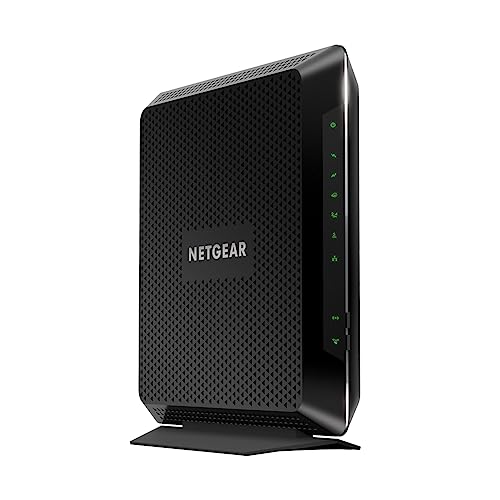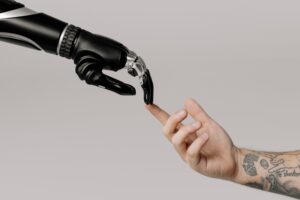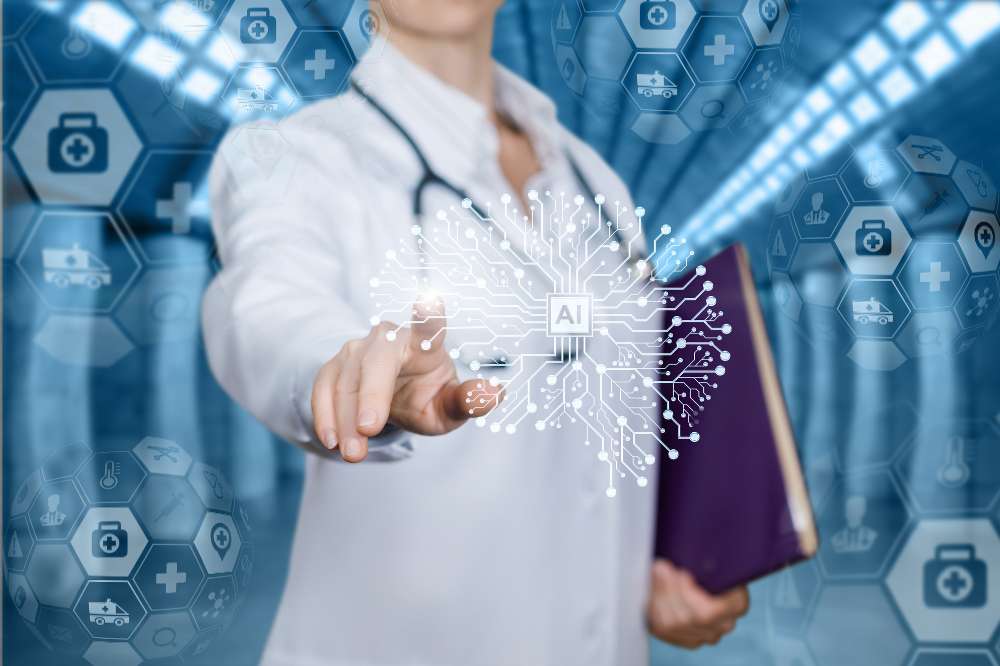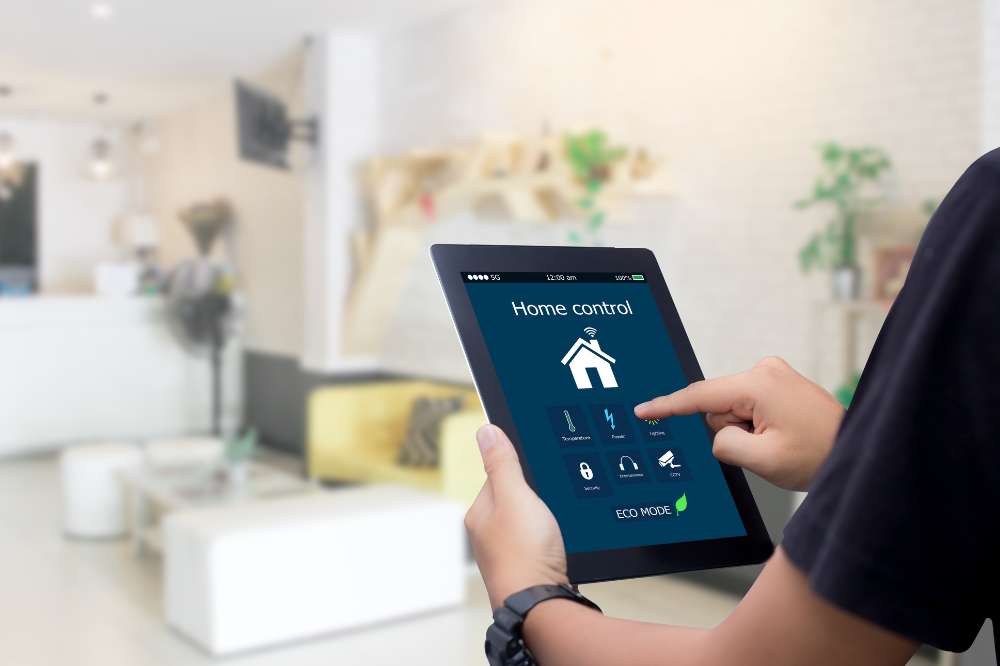There is no denying a major shift in our health culture in the 21st century. Apart from consuming unhealthy foods, many people are now given to a sedentary lifestyle.
The effect of these is that we now have a growing population of unhealthy people needing proper medical care and attention than ever before. While there is a growing concern about the increasing number of individuals needing medical care, the number of healthcare professionals is declining, leaving a strain on the healthcare system.
With the advent of Artificial Intelligence, healthcare delivery is now improving. Consumer health tech is now filling the void caused by an inadequate number of health experts worldwide. Hence, more people can now spend the rest of their years in sound health.
This article talks about the innovations and prospects of AI in the healthcare system.
- Compatible with major cable internet providers including Xfinity, Spectrum, Cox and more. NOT compatible...
- [Compatibility] 12V Power Supply Adapter Compatible with Netgear, Linksys, Asus,Motorola, Motorola/Arris...
How AI Is Influencing Healthcare in the 21st Century
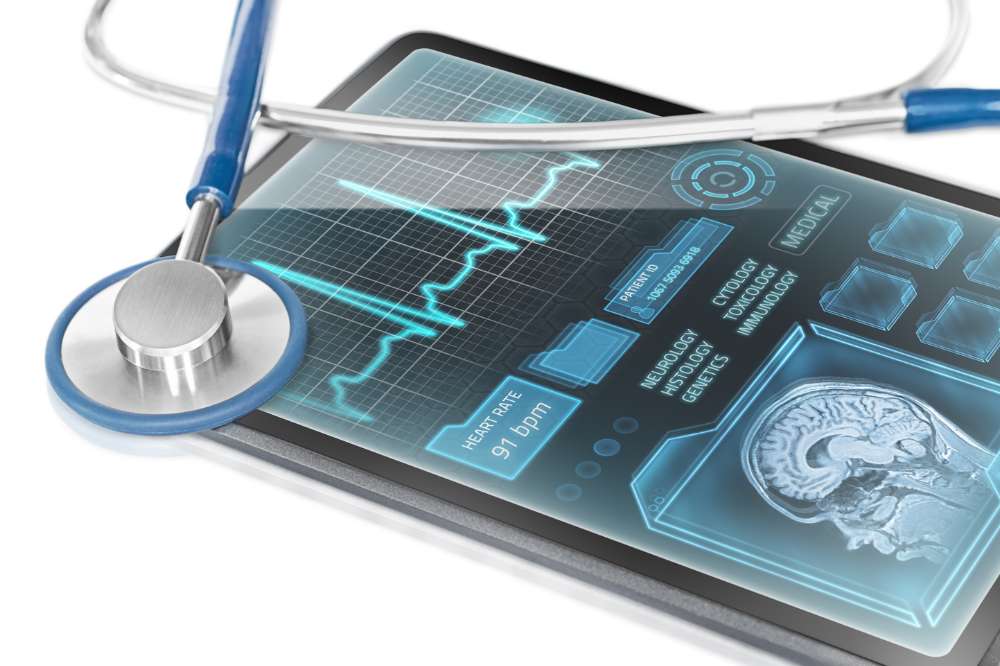
Personalized Medicine
Generally, no two individuals are the same. The same applies to healthcare delivery. Individuals suffer from different diseases, and the best way to completely subdue such illnesses is to personalize treatment. Personalized treatment is made possible by AI in healthcare.
Considering the time and energy that might be lost when seeking consultation from health practitioners, many people are usually discouraged and may decide to stay home. This is dangerous as the illness may become severe after some time.
Indeed, early detection goes a long way in stemming the tide of certain diseases like cancer. AI makes it possible to check symptoms without the physical presence of a doctor. Online tools and symptom checkers help people understand the nature of their sickness.
Further, you get to know whether or not the sickness is infectious and how to manage yourself for a certain period. After personal management and constant monitoring, you get to schedule a session with a doctor.
In addition, AI medical devices help extract information about genetics. This is crucial for understanding a patient’s health background and how to tackle illnesses effectively.
Consumer Health Tech Promotes Remote Patient Monitoring
Recall that during the COVID-19 pandemic, hospitals had to discharge several in-patients as only severe conditions were given attention. There was, therefore, an urgent need for an alternative means to monitor patients’ conditions. Trust AI to aid patients worldwide!
This period witnessed a surge in remote patient monitoring. Several companies invested in RPM, with experts predicting a market cap of $117 billion by the end of 2026.
Remote patient monitoring tools like sensors are popular across the world. These devices are programmed to monitor patients’ vitals. The data is transmitted to health professionals in real time, and the alarm is triggered automatically if the patient requires urgent medical attention.
What’s even more interesting about remote patient monitoring is that the devices are wired with built-in microphones. This means that the patient can communicate with their doctor, and the doctor can, in turn, guide the patient on what to do and the dosage of drugs to take at different times. As there is an increasing population of persons suffering from common diseases like diabetes, there also arises a desperate need for better home medical care.
The Advent of 3D Bioprinting
One of the biggest challenges posed to the healthcare sector is the lack or unavailability of tissues and organs for transplant. From time to time, patients need certain organs to function properly. But this particular limitation in the healthcare industry over the years has caused pain, tears, and sorrows to patients and their families.
Waking up to this challenge, scientists and innovators have collaborated to invent 3D bioprinting. What exactly is 3D printing, and how does it work?
Well, during this process, bio-inks are crucial. They contain active cells from which human organs and tissues are created. Perhaps that sounds too good to be true. You have probably heard about prosthetics. Of course, that is one of the successful experiments of 3D printing.
Scientists are taking advantage of AI to give hope to patients who need unconventional organ and regenerative transplants. You would marvel at the level of craftiness and perfection that 3D printing adopts in delivering personalized organs and tissues.
AI Medical Devices Can Now Predict Illnesses
Are you aware that healthcare is not only meant to be combative? It is also predictive.
Predicting a health challenge can help you navigate infections or diseases that may pose great risks to your health. For instance, AI medical devices can trace your family history to detect a prevalent disease in your lineage, informing you of the probability of suffering such illness in the future.
This is a commendable consumer health tech innovation as it affords potential patients the opportunity to get sound medical advice on health management.
In the same vein, scientists and researchers deploy artificial intelligence to predict the outbreak of a disease in a community, country, or the world at large. The appropriate authorities are alerted, and all preventive measures are immediately put in place.
Evolution of Health Mobile Apps
In order to stay physically fit, many people now resort to walking certain kilometers. Artificial Intelligence is the system behind tracking the number of steps or walks you take per day. It helps you to stay fit, and you can also set milestones for physical health.
Also, health mobile apps are expanding daily. These apps give you the chance to talk to a doctor online without going through the hassles of visiting the hospital in cases that are not severe.
Mental health is as crucial as physical health. Top therapists are building applications that let people across the world schedule online sessions. In fact, advanced AI allows you to chat with a chatbot with a view to managing your mental health.
Conclusion
Products in different industries are usually designed with the users in mind. And the healthcare industry is no exception. The patients are the biggest beneficiaries of AI.
While AI greatly impacts the health sector, there are growing concerns about the ethical implications of the innovations, such as the confidentiality of patient information and medical history.

